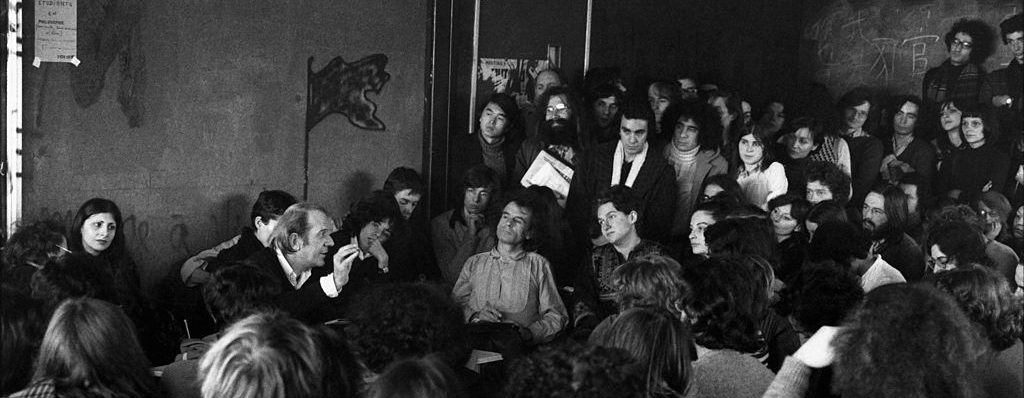
I'm delighted to be included in a dossier of essays curated by Ezekiel Dixon-Román devoted to Gilles Deleuze’s “Postscript on the Societies of Control.” Deleuze's "Postscript" has dramatically influenced my work over the years -- I devoted a whole chapter to this short essay in my last book -- so it was nice to revisit Deleuze's work in the context of contemporary events. Published on the Social Text website, the "Control Societies @ 30" dossier also includes contributions from Denise Ferreira da Silva, Orit Halpern, Martina Tazzioli, and Ezekiel Dixon-Román and Luciana Parisi.
What did Deleuze represent in thought and culture? He represented a new shape: rhizomes and distributed networks, assemblages and multiplicities, horizontality rather than verticality, surface over depth. He represented a new kind of subject, specifically the breakdown of the Freudian subject, a turn to affect instead of emotion, desiring machines rather than repressed neurotics, affirmation and expression (not negation), schizos not Cartesians. Deleuze represented a new ontology as well, a rejection of classical metaphysics, replaced by immanence, univocity, and multiplicity. Deleuze also represented a new bibliography: Spinoza instead of Descartes; Leibniz instead of Hegel; Bergson instead of Heidegger; Riemann instead of Einstein. At the very apogee of poststructuralism, Deleuze made it okay to stop talking about culture and epistemology and focus instead on ontology and being. And through it all Deleuze pushed a world that was a little less continental (Hegel, Husserl) and a little more Anglo (Peirce, James). Indeed, just as Deleuze once felt license to call Francis Bacon an Egyptian, I feel no hesitation in calling Deleuze an American.